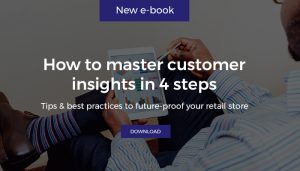It’s very well-known that data has become one of the most valuable assets for brands. It’s the lifeblood of any successful marketing strategy, providing insights into customer behavior, preferences, and needs. While third-party data has been a go-to resource for many brands, changes in the privacy landscape mean that relying on it is becoming less feasible. This is where first-party data comes in.
First-party data is data collected directly from customers through various touchpoints, such as websites, social media, and loyalty programs. It’s accurate, reliable, and provides brands with a wealth of insights into their customers’ behavior and preferences. By using this data, brands can create more personalized marketing campaigns, targeted messaging, and more effective loyalty programs.
One of the significant advantages of first-party data is its accuracy. Brands can be confident that the information they’re using is based on real customer interactions and behaviors, making it a more reliable source than third-party data. This accuracy is particularly crucial when creating personalized marketing campaigns and targeted messaging, as it ensures that the brand’s efforts are reaching the right audience with the right message.
Another significant benefit of first-party data is that it allows brands to create more seamless and personalized experiences for their customers. By collecting data across various touchpoints, brands can create a unified view of their customers, enabling them to provide personalized recommendations, targeted messaging, and an overall more seamless experience. This can drive customer engagement, loyalty, and ultimately higher sales and revenue.
Moreover, first-party data is often more cost-effective than third-party data. Brands can collect and analyze their own data without having to pay for access to third-party data sets, which can be particularly beneficial for smaller brands or startups that may not have the budget to invest in expensive data sets.
In conclusion, brands that prioritize the collection and use of first-party data will have a competitive advantage in today’s market. By using this data effectively, brands can create more personalized, engaging, and seamless experiences for their customers, building stronger relationships, and driving higher sales and revenue.
Do you want to set your marketing strategy based on first-party data? Contact INTELIQUA and don’t miss out on this opportunity to take your marketing strategy to the next level!
Click here to contact us!








